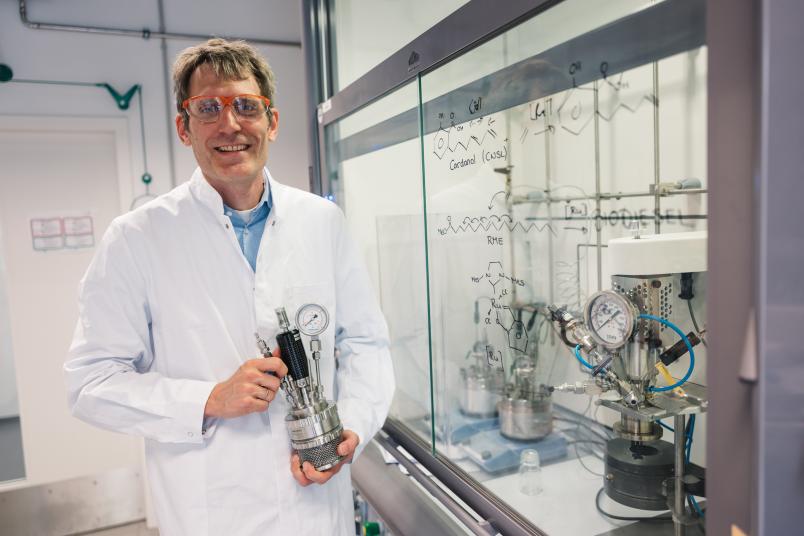
100 per cent organic
Researchers produce new biodiesel
In the EU, automotive diesel contains only seven per cent biodiesel. Conventional diesel engines cannot sustain more than that. Until now.
Scientists from the universities of Kaiserslautern, Bochum and Rostock have developed a new method for producing biodiesel. The researchers chemically treated a mixture of plant oils to generate, at zero energy cost, a biofuel that can be added undiluted in modern diesel engines. Their trick: Use bioethylene to cleave the commercial rapeseed oil esters. Currently, European biofuel companies mainly produce biodiesel from rapeseed oil and methanol.
The team of Prof Dr Lukas Gooßen, a member of the cluster of excellence at RUB, published the findings in the prestigious journal „Science Advances“. Gooßen was since 2016 at the University of Kaiserslautern.
Challenging target
By the year 2020, the diesel sold in the EU should contain up to ten per cent biofuel, a challenging target. Biodiesel consists of long, uniform hydrocarbon compounds with different properties to diesel obtained from mineral oil. For example, it vaporises at higher temperatures, which can lead to problems with electronic fuel injectors and particulate filters.
The new approach allowed the chemists to fine tune the chemical properties of the biodiesel. By adding ethylene, which can be generated from bioethanol, they transformed the long chains of rapeseed oil esters into a mixture of shorter chains. The new biofuel shows different ignition and combustion properties. For example, combustion starts at lower temperatures.

The first fuel batch costed much more than 1.000 Euro per liter.
Lukas Gooßen
Members of the Gooßen team could demonstrate that this new diesel fuel can actually power a self-made model car. “We reached a first milestone. But the way towards commercialization is long and uncertain”, says Lukas Gooßen. “The first fuel batch costed much more than 1.000 Euro per liter.”
